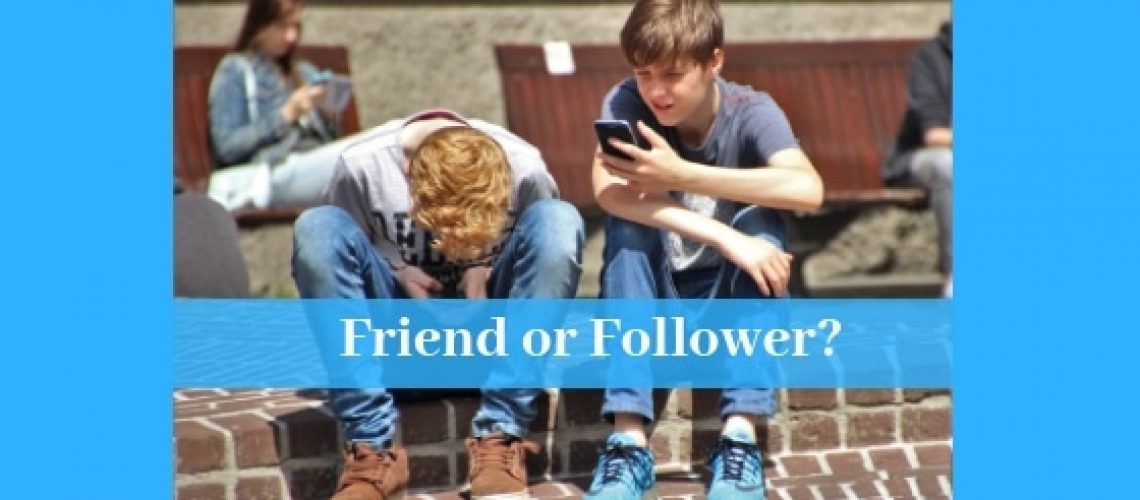We know young people are spending increasing amounts of time socialising online. This can be both with people they know in real life, as well as those they haven’t yet come face to face. It presents a wonderful opportunity to connect, collaborate and find solace with those of similar interests and beliefs. It also presents a whole new way of navigating relationships, personal interactions and the nuances of sharing and connecting in a public space. So for young people today, there are certain boundaries that may need to be set up and certain questions to ask of themselves, every time they connect with others and share part of their lives.
One of those questions we need our young people to be able to consider is “Do I know the difference between friend and follower?” Can our kids actually articulate how having friends they connect with in real life and online differs to those that they have allowed follow or befriended via 99 degrees of separation. That’s not to say they can’t call people they meet online friends, but not all of their followers on all of their social networks are likely to be their friend. Particularly as they get older and show far less scrutiny on who they will and won’t accept into their social media folds.
I think it’s an important distinction to make. Because there will often be a boundary defining that which they should share with their friends only, and that which can be fair game for all and sundry. Because even though some kids have well in excess of hundreds or even thousands of followers, they are often still only imagining a select group or handful of people on the receiving end of what they post. I have often had young people remark about how they can sometimes be surprised by comments or likes they get from certain people as they weren’t necessarily thinking about them when they wrote the post or created the image.
So getting kids to answer these questions helps them think a little more critically about the things they post and to take that extra moment to reflect on who is reading what they write.
Other questions therefore may be….
- Is this a conversation that should be moved into the real world? Do other people need to be involved in this?
- Is there anyone who may be offended by what I am posting?
- Would I be happy saying this in front of a large party of people I may not know well?
- Would this be better kept to my small group of close friends?
It sometimes sounds a little obvious that we shouldn’t post stuff we don’t want others to read. But sometimes the lines get a bit blurred, we forget the audience we are talking to and we get caught up in the moment. Getting our kids to think about what it really means to be a friend, as opposed to what it means to be one of many amassed followers, can be a great way to start them checking on themselves and being more conscious of all that they share or don’t share.

